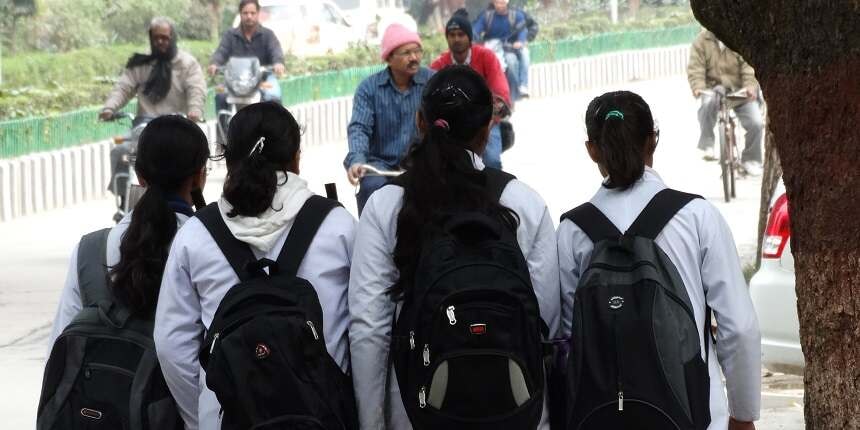Mandatory reporting of suicides, e-Complaint portal, suggests NMC task force on medical student health
Vagisha Kaushik | August 14, 2024 | 08:40 PM IST | 3 mins read
NMC’s National Task Force recommends scrapping semester repetition fee, seat leaving bond and reducing residents' work hours.

NEW DELHI: An e-complaint portal, more PG seats, removal of seat leaving bond, scrapping of semester repetition fee, supplementary exams, reduced working hours for residents, and mandatory reporting of suicidal attempt and death by suicide are some of the recommendations of the National Medical Commission (NMC)’s National Task Force on mental health and well-being of medical students in India. A total of 25,590 undergraduate students, 5,337 postgraduate students, and 7,035 faculty members responded to the online survey conducted by the task force.
In its report, the task force talked about the language guidelines for suicide cases, reports on student suicides, risk factors for mental illness, survey results, and recommendations. The report mentioned that 122 medical students including 64 UG and 58 PG students have died by suicide in the last five years as reported by the National Medical Commission (NMC).
For the report, the task force conducted online and in-person meetings with various medical associations, students, parents, and concerned persons. These meetings were attended by the representatives of the Federation of Resident Doctors Association India (FORDA) and Resident Doctors Association (RDA).
“Engaging with associations of medical students allowed the task force to understand the collective concerns, suggestions, and needs of the student body from their representatives. This provided valuable insights into the challenges faced by medical students and potential areas for improvement in their educational and support systems. Meetings with resident organizations helped the task force gain perspectives from postgraduate students who were directly involved in 24/7 clinical duties. Their feedback was crucial in understanding the practical challenges and stresses of residency, including duty hours, work-life balance, and mental health support,” the report read.
Also read MBBS students are battling despair and depression in medical colleges
Student suicides: Recommendations of task force
The task force divided the recommendations into three sections – universal recommendations targeting medical colleges, medical students, family members of medical students, faculty members; identification of high-risk groups and referral; persons with mental illness and attempted suicide.
For medical colleges, the task force suggested conducting orientation programme for students at joining, involving family members at least once a year, implementing anti-ragging measures, conducting awareness campaigns, providing counselling services, improving hostel mess and work environment.
The task force recommendations limited the working hours of residents to 74 hours per week and suggested inclusion of psychiatry in the course curriculum. It emphasized teamwork, a supportive and safe environment with all facilities, provisions of family accommodation, dual evaluation process (marks-based and pass/fail), among others.
The panel further suggested NMC to establish an ‘e-Complain portal’ for students, faculty, and others. It also found a problem with medical colleges failing students “deliberately” for obtaining semester repetition fee and asked for withdrawal of such fee.
Also read 20 days of paid leave, NExT exam, parity in stipends: NMC regulations on PG medicine
The other measures recommended by the task force to reduce student suicides include limiting access to means for suicide, increasing the number of PG and super-specialty seats, hiring more senior residents, removing seat-leaving bond and rural service bond, providing optional courses, reintroducing supplementary exams at semester level, roll-number based results, a centre for medical teacher training, campus placements, starting health universities, and incorporating yoga in the curriculum.
It further suggested setting up a centre for Innovation, Incubation, Collaboration, Accelerator, Research, Entrepreneurship, and Medical Device Development (ICARED).
Recommendations for students, parents, teachers
For students, the task force enlisted some steps to maintain good health such as effective time management, self-awareness, socializing, meditation and exercising, proper sleep, and seeking professional help.
Families of medical students can educate about the stress, openly communicate with their children, encourage students to interact and develop good habits, collaborate with teachers, and keep an eye on symptoms amongst students suggesting “poor coping”, as per the task force. The parents should be aware of signs such as withdrawal, behavioral changes, difficulty in studies, absenteeism, substance use, and suicidal thoughts.
Lastly, the faculty members, who directly impact the mental health of students, can work as a guide, review academic curriculum and de-stress students, become students’ role models, allow leaves, encourage self-development, undergo training for counselling, and prioritize their own well-being.
Follow us for the latest education news on colleges and universities, admission, courses, exams, research, education policies, study abroad and more..
To get in touch, write to us at news@careers360.com.
Next Story
]'Issue advisory for men!': Silchar Medical College’s ‘misogynistic’ advice for female students draws flak
Silchar Medical College faces backlash for asking female to ‘not to attract unnecessary attention’ after the Kolkata doctor rape and murder case; gets heavily trolled on social media.
Anu Parthiban